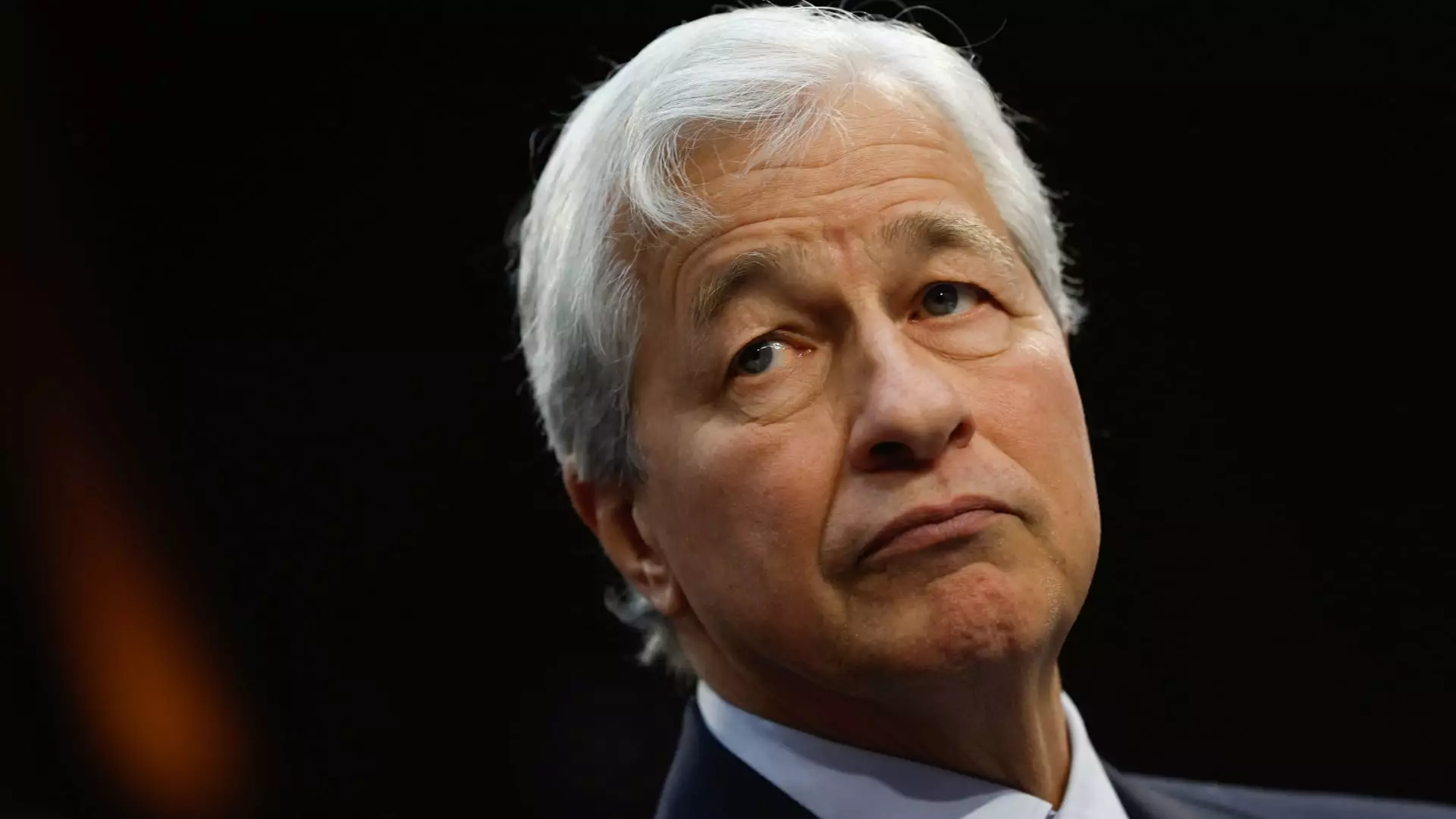In a stark warning about the growing geopolitical risks around the globe, JPMorgan Chase CEO Jamie Dimon has painted a dire picture of the current situation. Speaking during the bank’s third-quarter earnings release, Dimon highlighted the increasing volatility resulting from sustained conflicts, particularly in the Middle East and the enduring crisis stemming from Russia’s invasion of Ukraine. His comments resonate deeply within the financial sector and beyond, as global stability is not merely a political concern but also a critical backdrop for economic performance and investment.
Dimon’s assessment suggests we are witnessing a paradigm shift: the international order established post-World War II is fracturing under the weight of contemporary conflicts and geopolitical tensions. Recent developments—such as rising tensions between the U.S. and China, coupled with threats of nuclear engagement from nations like Iran, North Korea, and Russia—indicate a precarious landscape that could have profound implications on future global dynamics. The stakes are alarmingly high, and Dimon emphasizes that it necessitates not just awareness but decisive action from global leaders.
Shifting focus to the humanitarian implications, the ongoing conflict between Israel and Hamas has dramatically escalated over the past year, culminating in catastrophic loss of life and widespread suffering. The fallout has extended beyond regional borders, drawing in actors such as Hezbollah and Iran and creating a multifaceted crisis that threatens to destabilize the region further. This war, ignited by Hamas’ attack on October 7, 2023, has reportedly resulted in tens of thousands of deaths, transforming it into a significant point of concern for international policymakers.
On a broader scale, Dimon warns that as these conflicts intensify, they threaten to reshape economic outcomes on multiple fronts. The uncertainty created by conflict leads to risk-averse behavior among businesses and investors alike, which stalls economic progression. As nations grapple with the consequences of warfare and unrest, key economic indicators become clouded, thereby complicating any attempts at a stable financial recovery. Dimon’s articulation of these risks encapsulates a central truth: the turbulence of geopolitical events is inextricably linked to the health of the global economy.
Citing the urgent need for robust leadership, Dimon expressed concerns regarding the present trajectory of global politics. He argued that effective governance from American and Western leaders is crucial in addressing these escalating threats. Without strong and decisive action, the risk is that the geopolitical environment could spiral into further disarray, undermining both regional stability and international cooperation.
Despite the reassurances offered by some economic indicators—such as slowing inflation and a seemingly resilient U.S. economy—Dimon highlighted persistent issues facing the nation, including fiscal deficits, infrastructural challenges, and globally rising military expenditures. The stark reality is that these challenges require more than mere economic management; they demand a comprehensive re-evaluation of foreign policy and collective security strategies.
Jamie Dimon’s comments serve as a clarion call to address the shifting sands of global geopolitics. As nations face unprecedented challenges, the imperative for strong leadership and strategic foresight has never been clearer. How leaders respond to this critical juncture will likely define the trajectory of not just the economy, but the very fabric of international relations for decades to come.

